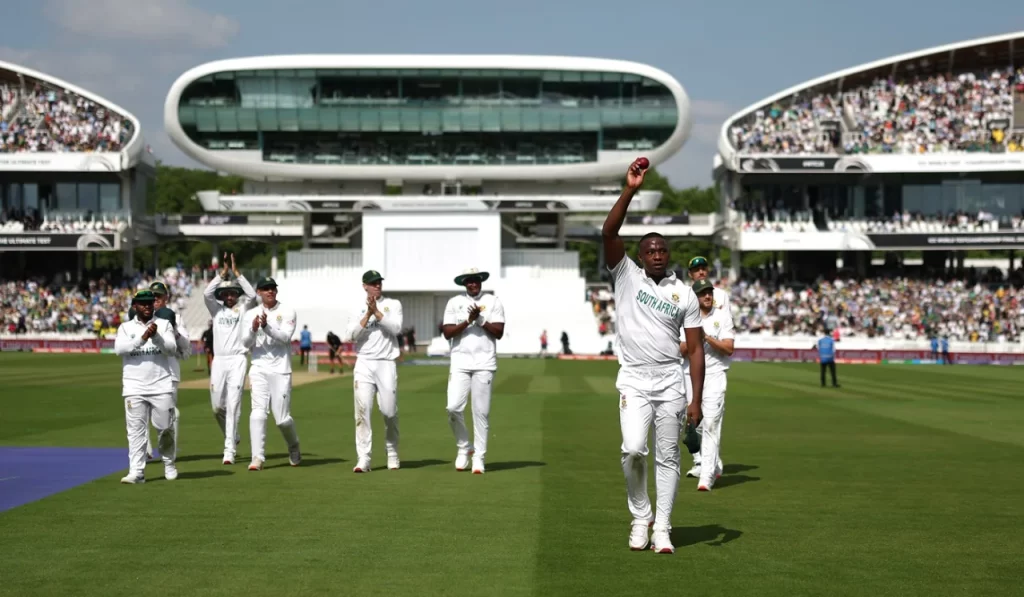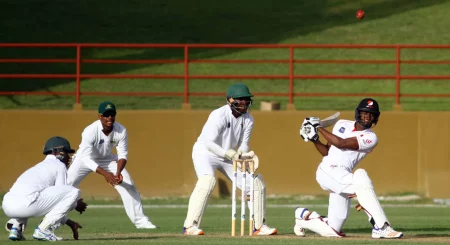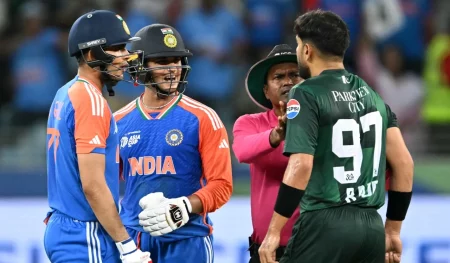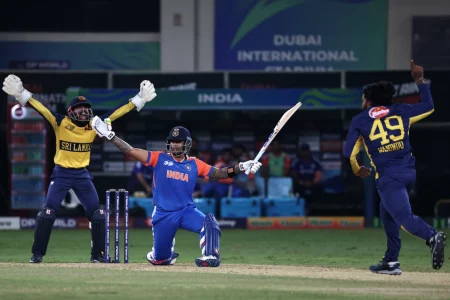Kagiso Rabada belongs to a class of pacers who are too nonchalant to relate to the superset. Fast bowlers generally are menacing, entitled, and perhaps somewhat emotional, too. They sting like a bee and float like one as well. But Rabada’s kind likes to stay low. He said he isn’t a star, just a few hours after he bagged nine wickets in the World Test Championship (WTC) final at Lord’s.
The thing about Rabada and the type of fast bowlers he represents is that such statements aren’t usually made to avoid being labelled immodest. Rabada is self-aware to a dangerous degree. If he says he isn’t a star, he probably isn’t, or at least doesn’t deem himself one yet. And if a bowler who has more than 300 Test wickets in his bag, after playing just 71 games, says he is a work in progress, there’s something for those he opposes to worry about.
For his teammates, though, he is ready to give his blood. One of the things on his mind when he was being lambasted for illegally using a banned substance by the world was how he would clear the air with his teammates.
“I don’t see myself as a star,” Rabada said in a business-like tone. “I see myself as someone who’s willing to give my blood for this team and continue working hard and improving. That’s me as a cricketer, always wanting to improve and playing for the badge with a lot of pride. I’ve been working extremely hard, and those second-innings spells, those are the ones that count more, when you’re a bit tired. You could be behind the game, or you could be ahead of the game. This time, we’re behind the game. But I think it was just about staying calm and looking at what’s in front of us. That’s the way I see myself.”
He is currently third on the list of highest wicket-takers among active players. Only Mitchell Starc and Nathan Lyon, both more experienced than him, have more scalps to their names. And the secret behind his barely believable numbers is that he pays little attention to the voices pushing him back, both external and internal.
“There are normally two voices in your head, the one that doubts and the one that believes. The second is the one that we keep feeding, especially in big moments like this, the World Test Championship final,” Rabada said, speaking to the media after the final. “That’s why you saw the performances you saw. It’s a testament to our team this season.”
South Africa may have found another title running away from them had it not been for a few things going their way – one, and perhaps most vital of which, was Rabada’s spell in both innings. Particularly the second, where the pitch was flattening out and losing its early spice. Shukri Conrad, South Africa’s head coach, believes their bowling kept them in the hunt.
“Where did we turn it around? Obviously, that bowling performance, because we could easily have fallen asleep in the field and then they would have gotten away from us in a big way,” Conrad said. “As for KG [Kagiso Rabada] – that’s why he’s the superstar. He knew we had one chance at it.”
Both teams met at Lord’s with contrasting relationships with glory. Australia were running out of space to store their silverware. South Africa, on the other hand, had none. As deserving as the Proteas were of reaching the final, their standing a chance against Australia wasn’t something to bet on. Those who did were stupid. Those who didn’t were no less.
“I’ll never forget this in my life. None of the boys will forget this in their lives. Playing against Australia, they’re a well-accustomed team, a bit of an ageing team, with all due respect. Some of those guys were playing when we were still in high school,” he said. “So this is special, special, special. It hasn’t sunk in yet. I can’t really describe.”



